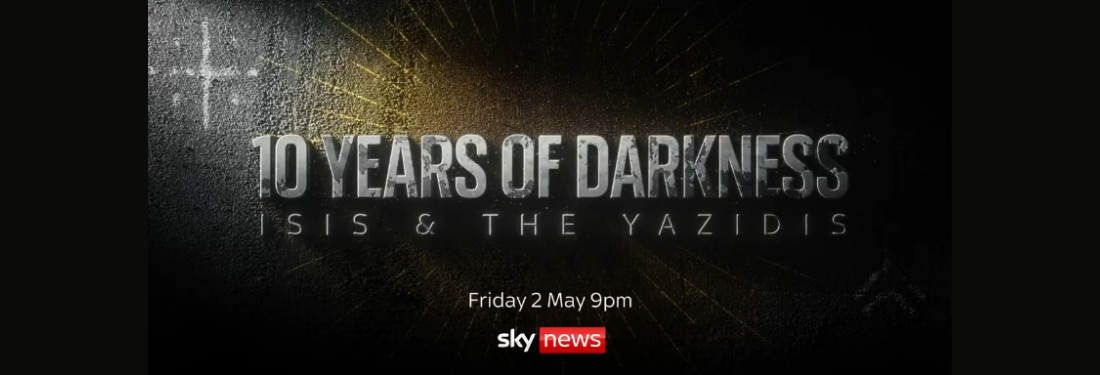IBA’s eyeWitness to Atrocities app used as evidence in Ukrainian court

Footage recorded using the IBA’s eyeWitness to Atrocities app has been used as evidence in four cases in the Ukrainian courts. The app captures tamper-proof photo, video and audio footage, which meets the strict evidentiary criteria required to be admissible as evidence.
‘When evidence is indisputable, justice becomes harder to deny. The technology behind the eyeWitness app is helping documenters, lawyers and courts rely on evidence that cannot be altered or challenged, reinforcing the pursuit of truth and accountability,’ stated IBA President Jaime Carey.
Three of the cases are adjudicated by the Commercial Court of Kharkiv in Ukraine and relate to compensation claims for damage to non-residential property. The fourth case is held in the Kharkiv District Administrative Court and relates to the challenge of a tax decision.
Mark Ellis, IBA Executive Director, adds: ‘The inclusion of footage captured using the eyeWitness app in these cases reinforces the importance of verified digital evidence in seeking justice. The eyeWitness app provides an essential tool for documenting human rights violations, property damage and war crimes, and we will continue working with legal bodies to facilitate its use in the pursuit of justice.’
The eyeWitness app has been used in Ukraine since 2017 to securely document human rights violations and international crimes. To-date, documenters on the ground in Ukraine using the app have submitted more than 55,000 photos, videos and audio recordings to the eyeWitness database.
‘Behind every verified photo or video captured with the eyeWitness app is a documenter risking their safety to preserve the truth. The fact that more than 55,000 pieces of evidence have been securely captured in Ukraine reflects both the scale of the crimes and the bravery of those working to expose them,’ says Carrie Bowker, Director of eyeWitness to Atrocities. ‘The use of the eyeWitness app in these cases underscores the growing recognition of the importance of verifiable digital evidence in legal proceedings.’
Key takeaways from the 58th session of the UN Human Rights Council
The IBA’s Human Rights Institute (IBAHRI) has published its reflections on the 58th session and associated side events of the UN Human Rights Council (UNHRC), held from 24 February – 4 April 2025.
At one side event, the IBAHRI and the IBA International Criminal Court and International Criminal Law (ICC & ICL) Programme convened high-level officials of the ICC and the Assembly of States Parties (ASP) with state representatives to discuss the role that the UNHRC can play in promoting accountability for international crimes through strengthened support for the ICC.
The IBAHRI also issued two statements condemning the US government’s recent attacks against the ICC and calling for the UNHRC to continue supporting the Court in its vital work ensuring justice for victims of genocide, war crimes and crimes against humanity. The IBAHRI further welcomed the timely and important joint statement from the Friends of Multilateralism Group – coordinated by Albania, Chile, Kyrgyzstan and the Netherlands – on the importance of multilateral human rights cooperation.
The IBAHRI also supports the adoption of a new resolution on Ukraine, re-mandating the Independent International Commission of Inquiry on Ukraine. The new resolution gives additional attention to the challenges faced by children given Russia’s campaign of forced russification, indoctrination and militarisation across Ukraine’s occupied territories.
Read the reflections in full and links to statements
IBAHRI raises concern over legislative amendments in Peru
The IBAHRI released a statement expressing concern regarding amendments to Law 27692 on the creation of the Peruvian Agency for International Cooperation (APCI), which were put into effect by the Executive on 14 April 2025.
On 12 March 2025, the Peruvian Congress passed a consolidated bill that expands the APCI’s oversight and enforcement powers over international cooperation implemented by non-governmental organisations (NGOs) and other entities through numerous amendments.
‘The amendments, which include undefined and/or ambiguous language, fail to fulfil the requirements of legal certainty, necessity, proportionality and due process before an independent tribunal; all of which are essential safeguards for restrictions on freedom of assembly,’ the statement says.
The IBAHRI urges the Peruvian Executive to repeal the amendments to the APCI Law and engage in meaningful dialogue to ensure that legislation on international cooperation upholds international human rights law and standards.
Parliamentary session on global responses to the Yazidi genocide

The International Bar Association’s Human Rights Institute (IBAHRI) recently organised a UK parliamentary session on the Yazidi genocide. The session provided an opportunity for the audience to see parts of a documentary, 10 Years of Darkness: ISIS and the Yazidis, and hear from its producer, acclaimed war correspondent Alex Crawford OBE, as well as from a survivor of the genocide.
3 August 2024 marked the 10th anniversary of the Yazidi genocide. On that day in 2014, Daesh (also known as Islamic State, among other names) attacked Sinjar in Iraq and carried out many atrocities against the Yazidi community. Daesh killed many men and elderly, abducted boys to turn them into child soldiers and kidnapped women and girls, subjecting them to horrific abuse.
These atrocities are recognised as amounting to genocide. More than 2,600 Yazidi women and children continue to be enslaved, with limited efforts made so far to rescue them. As such, the genocide against the Yazidis is considered ongoing.
Crawford’s documentary examines the Yazidi genocide and how the world has since responded. It calls for action to be taken to address the atrocities with comprehensive responses, including in relation to justice and accountability.
‘This documentary showcases the importance of ensuring that international crimes, such as those committed against the Yazidis, are addressed with comprehensive responses,’ says Hina Jilani, Co-Chair of the IBAHRI. ‘Justice and accountability are key and cannot be jeopardised.’
The IBAHRI has continued to draw attention to the situation of the Yazidis over the years. In 2023 for example it published a mapping report looking at the legal responses to date and identifying gaps and recommendations to address them. The same year, the IBAHRI testified before the Joint Committee on Human Rights’ Daesh Inquiry.
For more information, click here.
Parliamentary sessions on modern slavery and repression of journalists
The IBAHRI continued its programme of events in the UK Parliament with two sessions that covered issues of focus for the Institute.
The IBAHRI held an event on ‘10 Years of the Modern Slavery Act: Reflections and Future Actions’ in conjunction with the All-Party Parliamentary Group on International Law, Justice and Accountability. The event, which took place on 8 May, convened an expert panel of: IBAHRI Director Baroness Helena Kennedy LT KC; Laura Murphy, Professor of Human Rights and Contemporary Slavery at Sheffield Hallam University; Tatiana Gren-Jardan, Head of Policy and Advocacy at Justice and Care; and Sian Lea, Business and Human Rights Manager at Anti-Slavery International.
On 15 May, the IBAHRI held an event on ‘Tackling Transnational Repression against Journalists’ with International Human Rights Advisors and Hong Kong Watch. The panel discussed the shared challenges faced by journalists targeted by authoritarian regimes, including in China, Hong Kong, Iran, Turkey and Russia, and best practice for tackling this urgent issue. The panel comprised of: IBAHRI Director Baroness Helena Kennedy LT KC; Ben Keith, a barrister at International Human Rights Advisors; Kerim Balci, a journalist and Chief Advisor of Human Rights Solidarity; Catherine Philp, World Affairs Editor at The Times; and Lyndon Li, a journalist and human rights activist.
Joint statement expressing concern about crackdown on lawyers in Iran
The International Bar Association’s Human Rights Institute (IBAHRI) has published a joint statement expressing concern about the intensified state crackdown on lawyers in Iran. In February, the prosecutor’s office in Mashhad issued indictments against 16 lawyers on the charge of ‘propaganda against the state’, reportedly due to their social media activities relating to, among other things, human rights violations, social and economic injustices and corruption.
The joint statement, signed alongside the Law Society of England and Wales, the Center for Human Rights in Iran and Front Line Defenders, among several others, urges the Iranian authorities to ensure that lawyers aren’t subject to arbitrary arrest, detention and prosecution when conducting their professional duties and to guarantee that all lawyers in the country may exercise their right to freedom of expression, belief, association and peaceful assembly.
To read the full statement, click here.

